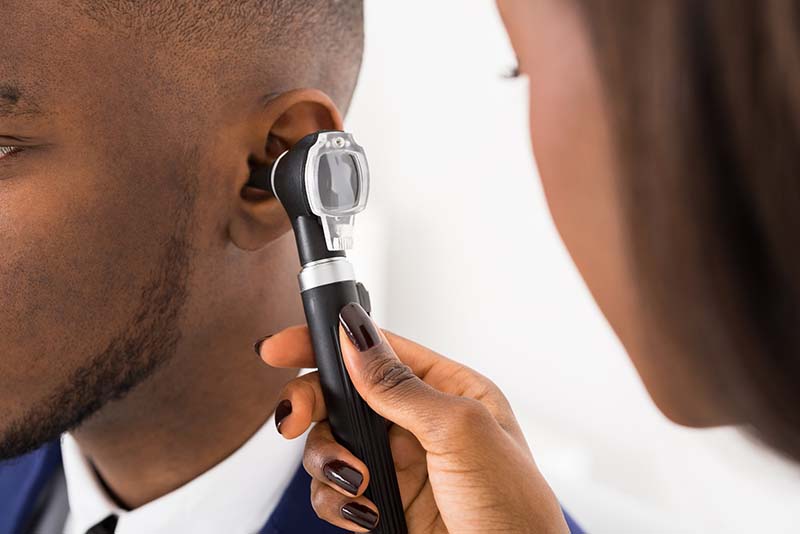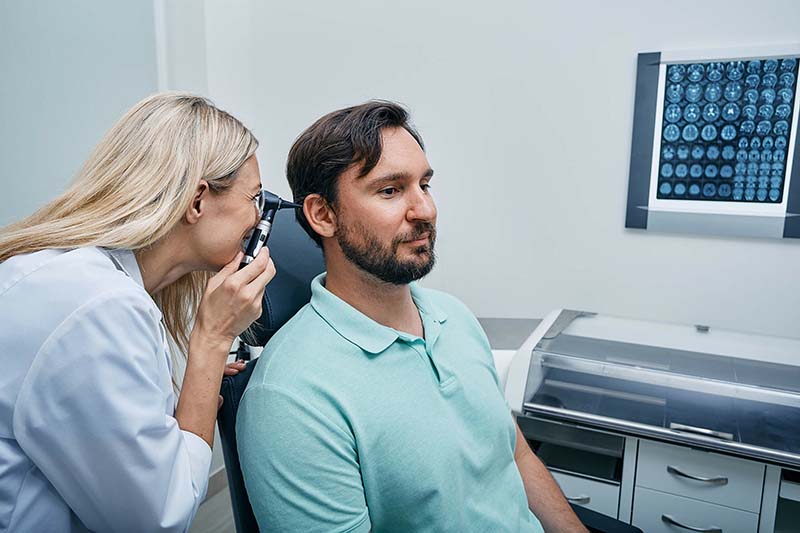As a commercial driver, maintaining good hearing is crucial for your safety and the safety of others on the road. The Department of Transportation (DOT) hearing test is an essential component of the DOT medical exam.
Whether you’re scheduling your DOT medical exam in Valley Stream or anywhere else, being well-prepared for the hearing test can help ensure a smooth certification process.
This guide will walk you through what to expect and how to prepare for your DOT hearing test.
Understanding the DOT Hearing Test
The Federal Motor Carrier Safety Administration (FMCSA) requires that commercial drivers have adequate hearing to perform their job safely.
The DOT hearing test assesses your ability to perceive a forced whisper at a distance of 5 feet, with or without hearing aids.
Key Requirements:
- You must be able to perceive a forced whisper in your better ear at 5 feet.
- If you use hearing aids, you’ll be tested while wearing them.
- In some cases, an audiometric test may be conducted instead of or in addition to the whisper test.
Preparing for Your DOT Hearing Test

1. Schedule a Pre-Test Hearing Evaluation
Before your DOT medical exam, consider getting a hearing evaluation from an audiologist. This can help identify any issues in advance and allow time for treatment if necessary.
2. Clean Your Ears
Ensure your ears are clean and free of excess wax. If you have concerns about ear wax, consult your healthcare provider for safe removal methods.
3. Avoid Loud Noises Before the Test
Exposure to loud noises can temporarily affect your hearing. Try to avoid loud environments for at least 16 hours before your test.
4. Get Adequate Rest
Being well-rested can help you stay alert and focused during the test, potentially improving your performance.
5. Manage Stress and Anxiety
Feeling stressed or anxious can affect your concentration. Practice relaxation techniques like deep breathing to stay calm during the test.
6. Bring Your Hearing Aids
If you use hearing aids, bring them to the test and ensure they’re in good working order with fresh batteries.
7. Communicate with Your Examiner
If you have any concerns or specific hearing issues, communicate these to your medical examiner before the test begins.
What to Expect During the DOT Hearing Test
The typical DOT hearing test involves the following steps:
- Whisper Test: The examiner will stand 5 feet behind you and whisper a combination of numbers and letters. You’ll need to repeat what you hear.
- Each Ear Tested Separately: The test is conducted for each ear individually. The ear not being tested will be covered.
- Multiple Attempts: If you don’t pass on the first try, you may be given additional attempts.
- Possible Audiometric Test: In some cases, you may undergo an audiometric test, which involves wearing headphones and responding to tones of varying pitches and volumes.
Understanding the Results
After the hearing test, your medical examiner will determine if you meet the FMCSA hearing standards. The possible outcomes include:
- Pass: You meet the hearing requirements and can proceed with the rest of your DOT medical exam.
- Conditional Pass: You may pass with the use of hearing aids. In this case, your medical certificate will indicate that you must wear hearing aids while driving.
- Fail: If you don’t meet the hearing requirements, you may be temporarily disqualified until you can address the hearing issue.
What If You Don’t Pass?

If you don’t pass the hearing test, don’t panic. Here are some steps you can take:
- Consult an Audiologist: Get a comprehensive hearing evaluation to identify the specific nature of your hearing loss.
- Explore Treatment Options: Depending on the cause of your hearing loss, there may be treatments available to improve your hearing.
- Consider Hearing Aids: If appropriate, getting fitted for hearing aids may help you meet the DOT hearing requirements.
- Exemption Program: In some cases, you may be eligible for the FMCSA’s hearing exemption program. This requires a separate application process and additional medical evaluation.
Maintaining Healthy Hearing for Long-Term Success
To ensure you continue to meet DOT hearing requirements throughout your career:
- Protect your ears from loud noises both on and off the job.
- Have regular hearing check-ups, especially if you notice any changes in your hearing.
- Keep your hearing aids in good condition if you use them.
- Maintain overall health, as some health conditions can affect hearing.
Conclusion
Preparing for your DOT hearing test is an important step in maintaining your commercial driving career. By understanding the process, taking steps to prepare, and maintaining good hearing health, you can approach your
DOT medical exam with confidence. Remember, whether you’re taking your DOT medical exam in Elmont or any other location, the key to success is preparation and proactive health management.
If you have any concerns about your hearing or the DOT hearing test, don’t hesitate to consult with a healthcare professional or a certified medical examiner.
They can provide personalized advice and help ensure you’re well-prepared for this crucial component of your DOT medical exam.
